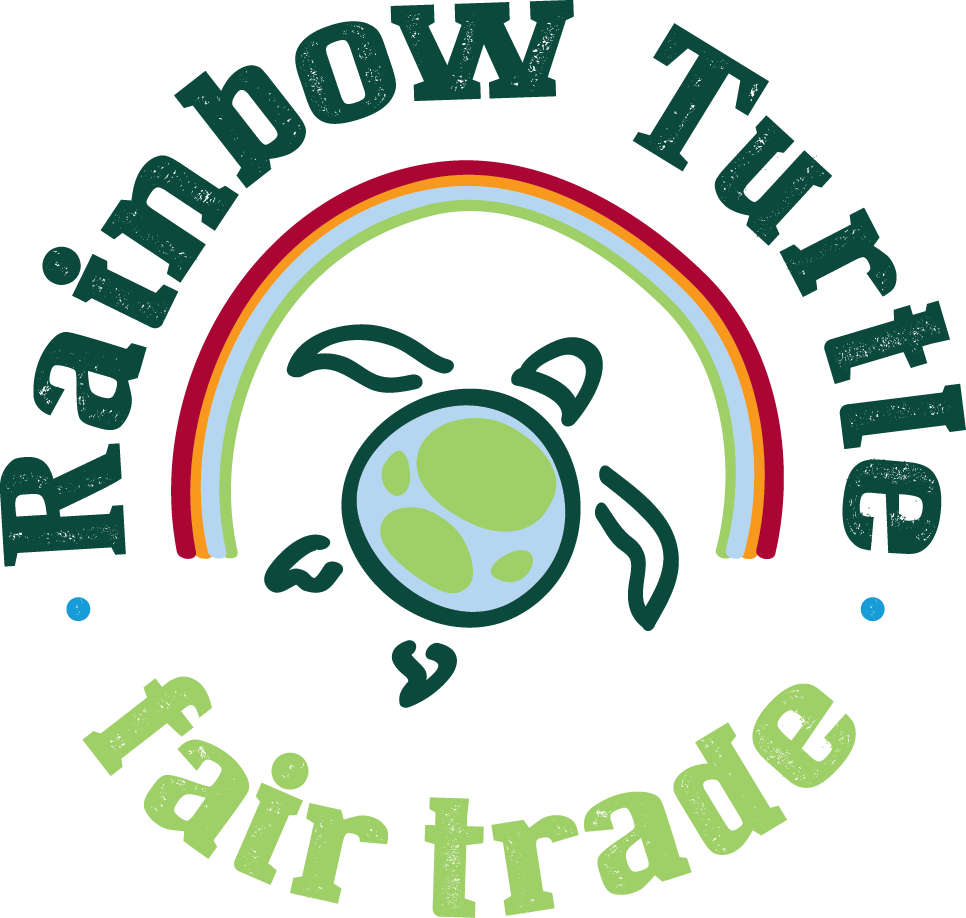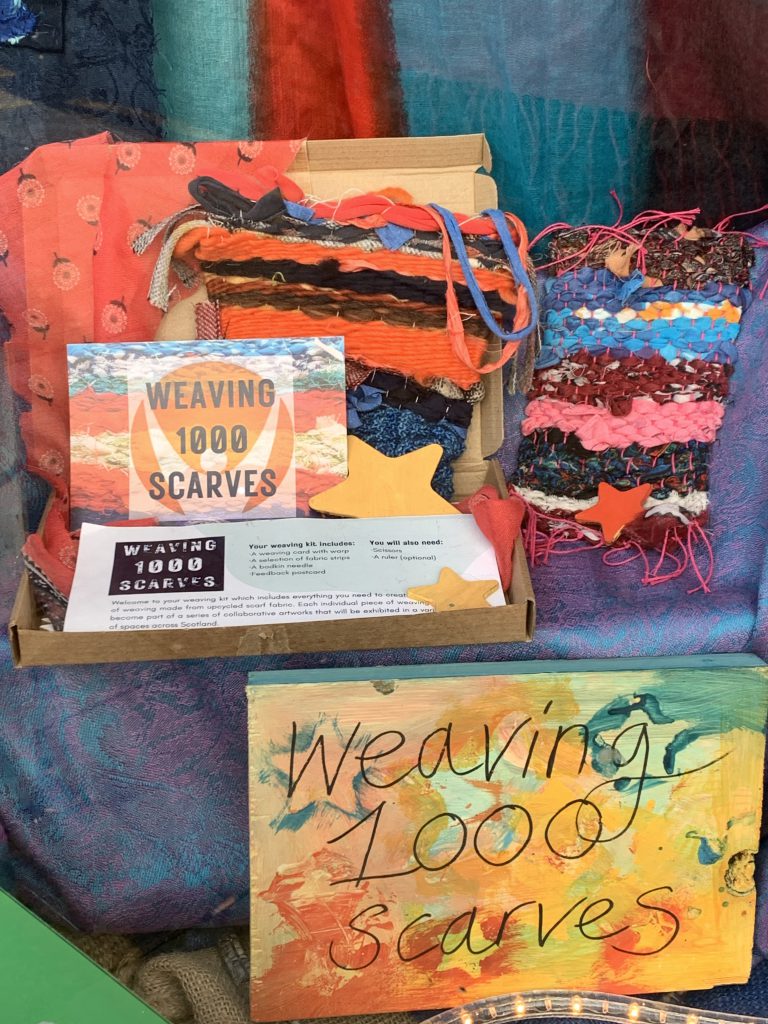
Rainbow Turtle education officer, Philippa Jeffery, recently decorated our shop window to publicise the 1,000 scarves project that Survivors of Human Trafficking in Scotland (SOHTIS) is currently running. Many people have been trafficked into Scotland and they have often been overlooked and hidden in plain sight.
The project takes second hand scarves and converts them into weaving kits which can be purchased from SOHTIS. The kits have been taken to schools and community groups so that they can all get involved.
The weavings have been made by people of all ages. Everyone who has made a weaving fills out a little card with a little about themselves. The weavings will become part of bigger artworks that will be publicly displayed in the future in order to raise awareness of human trafficking.
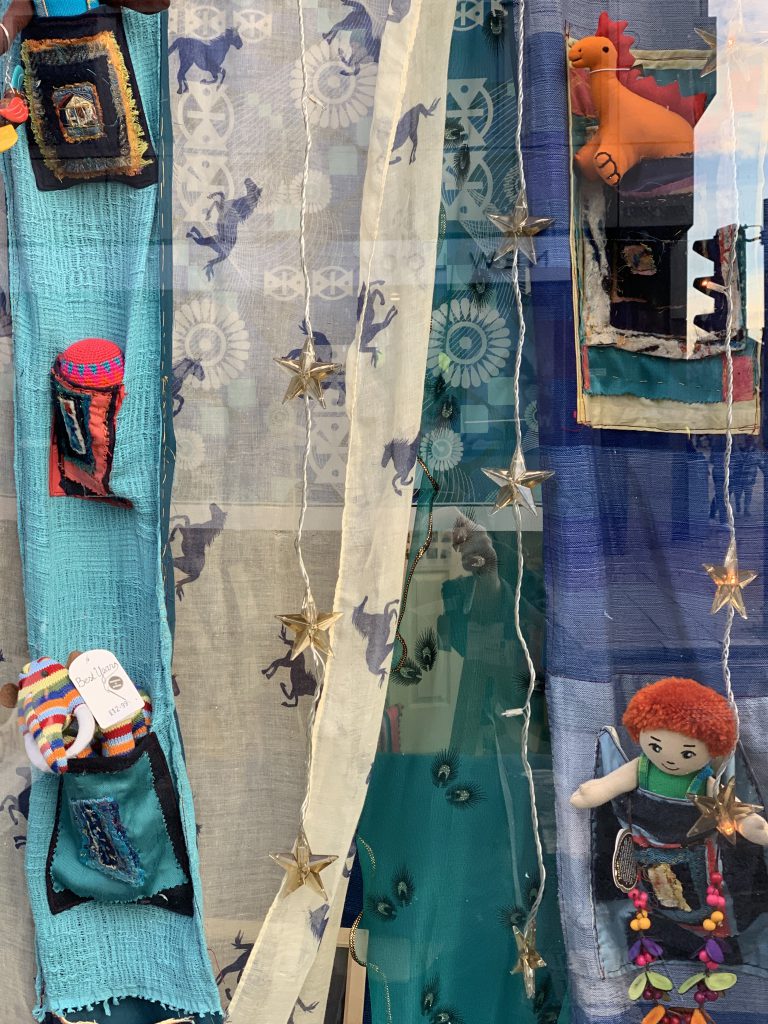
Philippa linked the scarves project with the idea of an advent calendar for our Christmas window. She stitched pockets into her scarves and placed 25 different fair trade products, sold in the shop, into them. Her work was kindly featured in a recent article in the Paisley Daily Express.
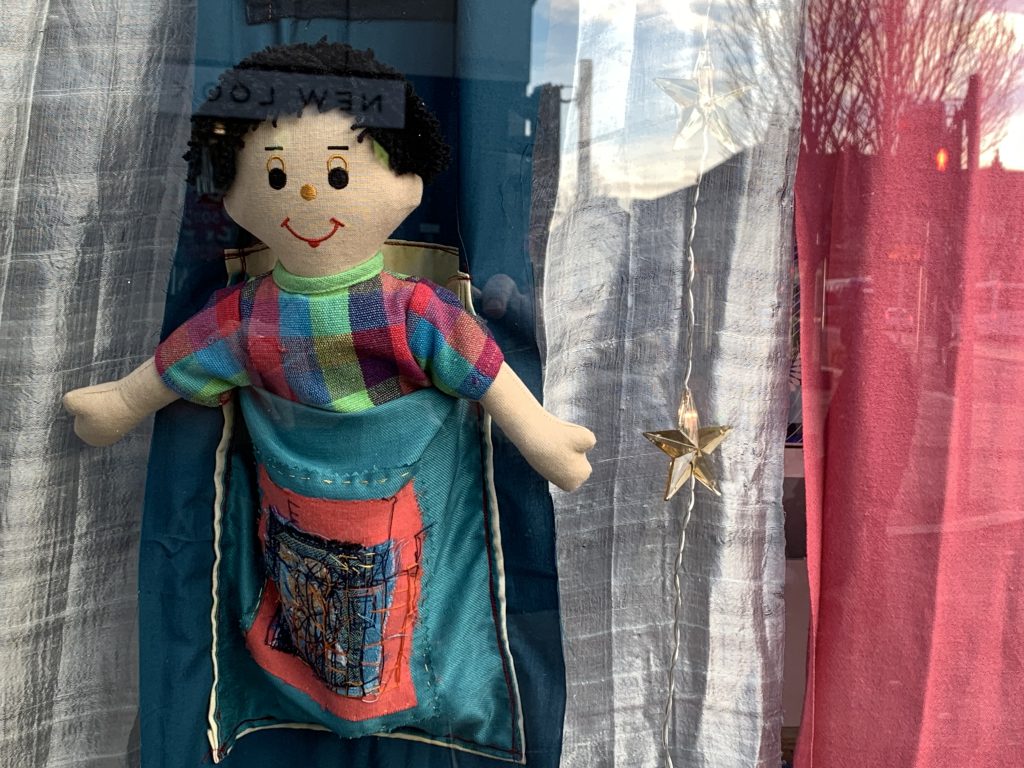
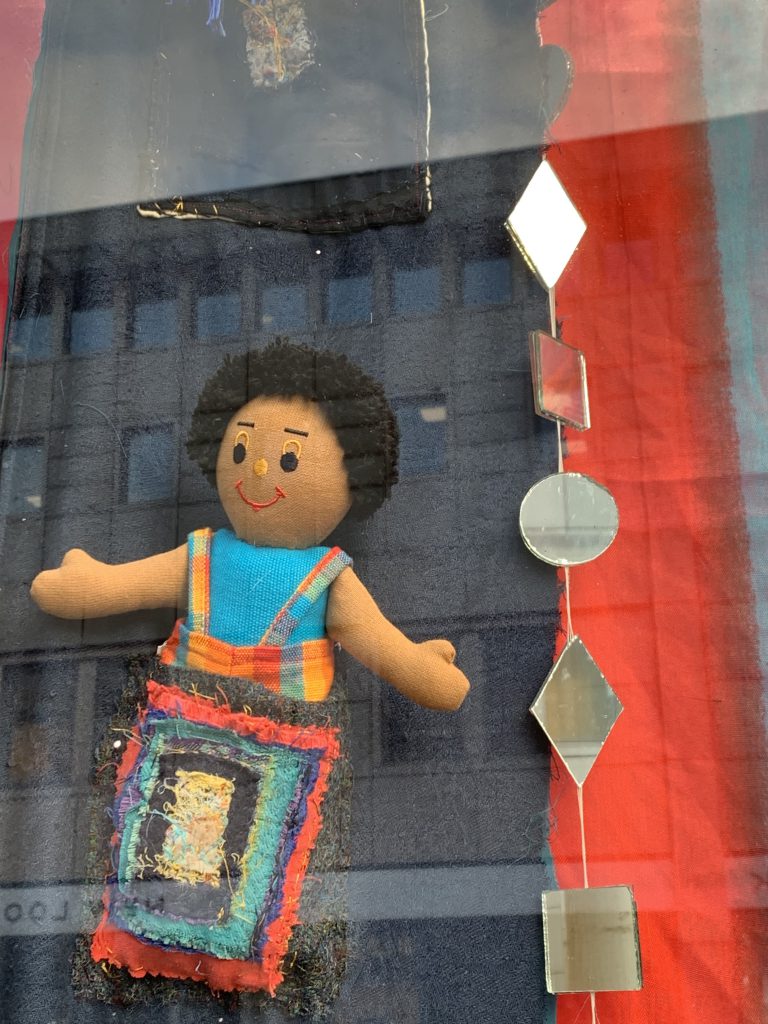
There are close links between promoting fair trade and shining a light on human trafficking. By buying fair trade products we help farmers and producers in developing countries create stable communities. The fair trade premium can be spent by the community on health care, education and clean water supplies. People who live in these villages and communities are less likely to end up being trafficked.
If you would like to know more about the 1,000 scarves project, or the education work that Rainbow Turtle does, you can contact Philippa here. Scarves can be donated at Rainbow Turtle.
